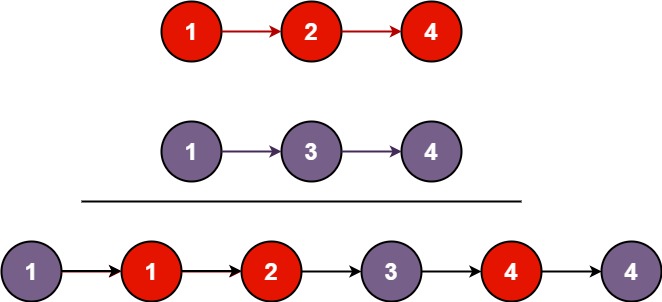You are given the heads of two sorted linked lists list1 and list2.
Merge the two lists in a one sorted list. The list should be made by splicing together the nodes of the first two lists.
Return the head of the merged linked list.
Example 1:

Input: list1 = [1,2,4], list2 = [1,3,4] Output: [1,1,2,3,4,4]
Example 2:
Input: list1 = [], list2 = [] Output: []
Example 3:
Input: list1 = [], list2 = [0] Output: [0]
NOTE:
- The number of nodes in both lists is in the range
[0, 50]. -100 <= Node.val <= 100- Both
list1andlist2are sorted in non-decreasing order.
This problem is very popular in LeetCode, GeeksForGeeks, GeeksForGeeks (in-place) A collection of hundreds of interview questions and solutions are available in our blog at Interview Question Solutions
----------------------------------------------------------------
SOLUTION:
Source code: Java
----------------------------------------------------------------
SOLUTION:
Source code: Java
No comments:
Post a Comment